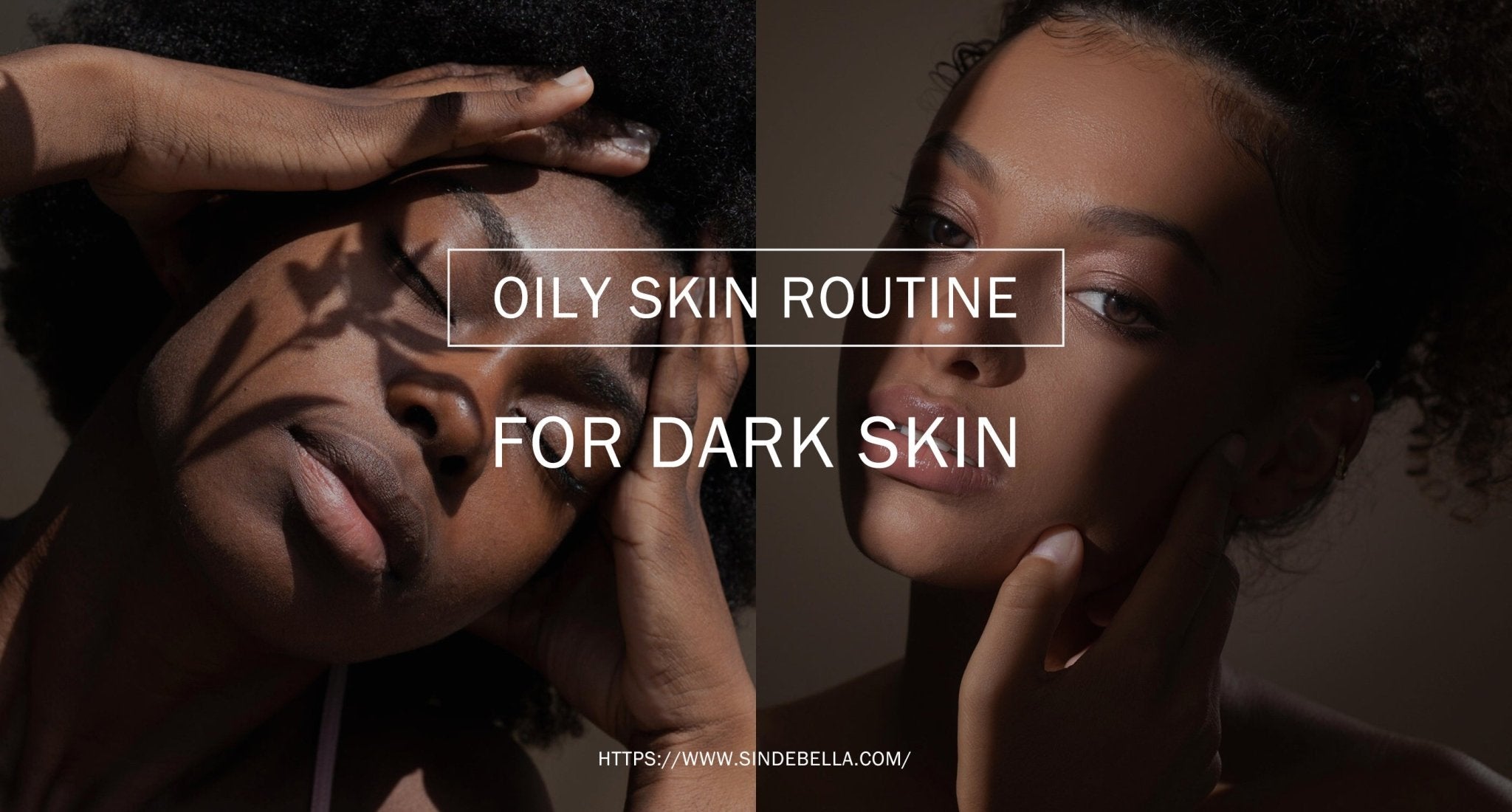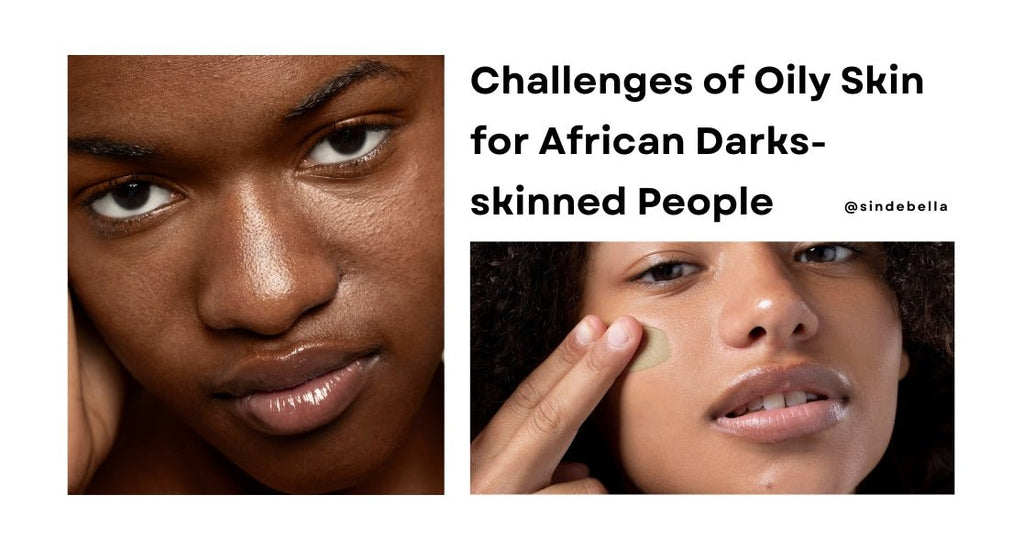
Choosing the Right Foundation formula for Acne-Prone Dark Skin in Africa
Choosing the right foundation for black skin acne-prone in Africa can be a daunting task. It can be very challenging to find a foundation that provides the right coverage, has the right ingredients, and is suitable for acne-prone skin. But with the right knowledge and product understanding, this task can be significantly simplified. In this article, we provide tips on how to choose the right foundation for black skin acne-prone in Africa.
Understanding Acne-Prone Dark Skin in Africa
Acne-prone dark skin in Africa has some unique characteristics that distinguish it from other skin types. One of the primary differences is increased sebum production, which is the oily substance that lubricates the skin and hair. This overproduction of sebum can clog pores, leading to the formation of blackheads, whiteheads, and pimples.
Moreover, individuals with dark skin in Africa are at a higher risk of post-inflammatory hyperpigmentation. This condition occurs when the skin produces too much melanin in response to inflammation caused by acne. As a result, the area surrounding the acne becomes darker than the surrounding skin.
Here are some suggestions may helpful.
1. Look for Non-Comedogenic products
Non-comedogenic products are formulations that are specifically designed not to clog skin pores. These products are ideal for those with acne-prone skin as they help keep pores unclogged, reducing the likelihood of blemishes. When choosing a foundation, look for products with non-comedogenic formulas.
You can learn about the some ingredient may cause comedogenic for acne prone skin
Some ingredients commonly found in foundation that can cause comedogenic reactions in some people include:
1. Mineral oil
2. Isopropyl myristate
3. Lanolin
4. Sodium lauryl sulfate
5. Ethylhexyl palmitate
6. Butyl stearate
7. Propylene glycol
8. Coconut oil
9. Soybean oil
10. Shea butter
Keep in mind that not everyone's skin reacts the same way to these ingredients and some people may not experience any issues with them. It’s important to patch test products before using to check for any adverse reactions.
2. Consider the ingredients
When it comes to selecting a foundation, ingredients should be a top consideration. Products containing salicylic acid and benzoyl peroxide are often ideal for acne-prone skin, as they help to unclog pores and decrease inflammation. Additionally, look for foundations that contain soothing ingredients such as aloe vera and chamomile, which help to calm inflammation.
In practice, the foundation won’t added the salicylic acid and benzoyl peroxide in the formula to keep the formula mild for the all skin types, so in order to have the same effect, you can apply the serum or cream with salicylic acid and benzoyl peroxide before your foundation.
3. Choose the Right Shade
Choosing the right shade that complements your skin tone is essential when selecting a foundation. When selecting a foundation for acne-prone black skin, it is best to select a shade that matches your natural skin tone since darker shades tend to highlight blemishes and discoloration. When selecting a shade, try as much as possible to match the color of the foundation to the color of your skin without going too light or too dark.
4. Opt for a Lightweight Formula
Lightweight formulas are ideal for acne-prone black skin types as they are less prone to clog skin pores. When selecting a foundation, look for lightweight formulas that offer adequate coverage. An excellent option is a liquid foundation that provides comfortable coverage without weighing the skin down.
5. Test the Foundation
Before making a purchase, it is imperative to test the foundation on your skin. Most makeup stores offer testers for customers who want to try out a product before buying it. Testing the foundation allows you to see how it feels on your skin, how it looks, if it causes a breakout or irritation, and if it stays put all day.
In conclusion, selecting the right foundation for black skin acne-prone in Africa can be a challenging task, but with the guidance of the tips mentioned above, you will find a product that suits your needs. When choosing a foundation, it is essential to look for non-comedogenic formulas, consider the ingredients, choose the right shade, select lightweight formulas, and test the product before purchasing. With these tips in mind, you can select a foundation that provides adequate coverage, offers skin benefits, and improves the appearance of your skin.
Understanding Acne-Prone Dark Skin in Africa
Acne-prone dark skin in Africa has some unique characteristics that distinguish it from other skin types. One of the primary differences is increased sebum production, which is the oily substance that lubricates the skin and hair. This overproduction of sebum can clog pores, leading to the formation of blackheads, whiteheads, and pimples.
Moreover, individuals with dark skin in Africa are at a higher risk of post-inflammatory hyperpigmentation. This condition occurs when the skin produces too much melanin in response to inflammation caused by acne. As a result, the area surrounding the acne becomes darker than the surrounding skin.
Here are some suggestions may helpful.
1. Look for Non-Comedogenic products
Non-comedogenic products are formulations that are specifically designed not to clog skin pores. These products are ideal for those with acne-prone skin as they help keep pores unclogged, reducing the likelihood of blemishes. When choosing a foundation, look for products with non-comedogenic formulas.
You can learn about the some ingredient may cause comedogenic for acne prone skin
Some ingredients commonly found in foundation that can cause comedogenic reactions in some people include:
1. Mineral oil
2. Isopropyl myristate
3. Lanolin
4. Sodium lauryl sulfate
5. Ethylhexyl palmitate
6. Butyl stearate
7. Propylene glycol
8. Coconut oil
9. Soybean oil
10. Shea butter
Keep in mind that not everyone's skin reacts the same way to these ingredients and some people may not experience any issues with them. It’s important to patch test products before using to check for any adverse reactions.
2. Consider the ingredients
When it comes to selecting a foundation, ingredients should be a top consideration. Products containing salicylic acid and benzoyl peroxide are often ideal for acne-prone skin, as they help to unclog pores and decrease inflammation. Additionally, look for foundations that contain soothing ingredients such as aloe vera and chamomile, which help to calm inflammation.
In practice, the foundation won’t added the salicylic acid and benzoyl peroxide in the formula to keep the formula mild for the all skin types, so in order to have the same effect, you can apply the serum or cream with salicylic acid and benzoyl peroxide before your foundation.
3. Choose the Right Shade
Choosing the right shade that complements your skin tone is essential when selecting a foundation. When selecting a foundation for acne-prone black skin, it is best to select a shade that matches your natural skin tone since darker shades tend to highlight blemishes and discoloration. When selecting a shade, try as much as possible to match the color of the foundation to the color of your skin without going too light or too dark.
4. Opt for a Lightweight Formula
Lightweight formulas are ideal for acne-prone black skin types as they are less prone to clog skin pores. When selecting a foundation, look for lightweight formulas that offer adequate coverage. An excellent option is a liquid foundation that provides comfortable coverage without weighing the skin down.
5. Test the Foundation
Before making a purchase, it is imperative to test the foundation on your skin. Most makeup stores offer testers for customers who want to try out a product before buying it. Testing the foundation allows you to see how it feels on your skin, how it looks, if it causes a breakout or irritation, and if it stays put all day.
In conclusion, selecting the right foundation for black skin acne-prone in Africa can be a challenging task, but with the guidance of the tips mentioned above, you will find a product that suits your needs. When choosing a foundation, it is essential to look for non-comedogenic formulas, consider the ingredients, choose the right shade, select lightweight formulas, and test the product before purchasing. With these tips in mind, you can select a foundation that provides adequate coverage, offers skin benefits, and improves the appearance of your skin.



